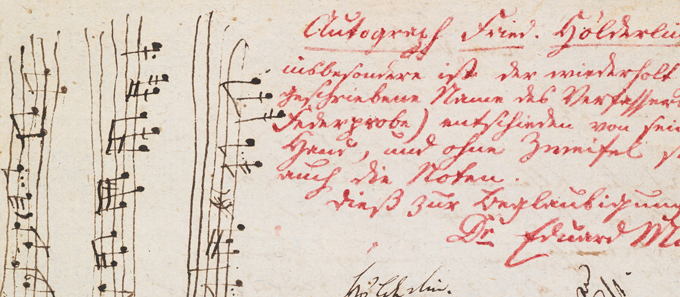
“Alternating Tones”: Musical Elements in the Poetry of Friedrich Hölderlin and its Reception with Composers. A Dialogue between German Studies and Musicology
This seminar has been organised by Gianmario Borio and Elena Pollastri with the support of the Centro Tedesco di Studi Veneziani, the Hölderlin-Gesellschaft, Tubingen, the Italian Section of the Hölderlin-Gesellschaft and the Department of Languages and Literature, Communications, Education and Society at the University of Udine and funded by the DAAD with funds from the German Foreign Office. It sets out to examine the relations between Hölderlin and the musical sphere and the interest shown by composers in his poetry. These aspects are seen as two sides of the same coin deserving to be studied in a multidisciplinary context. On one hand, German studies have highlighted how the art of sounds gives a definite feel to the work of Hölderlin, so much so that he himself described his creative procedure as “alternating tones” and his poems as “songs”; and on the other hand, musicological studies have explored the breadth and longevity of Hölderlin’s influence on composers, which gradually intensified in the 20th century.
The seminar’s objectives include creating moments of convergence between these two fields of research, thus continuing the path begun on the study day entitled Poetry “laden with future”. Friedrich Hölderlin and 20th-century music, held in 2014 by the Institute of Music in collaboration with the Fondazione Archivio Luigi Nono, the Centro Tedesco di Studi veneziani, the Europäische Akademie für Musik und Darstellende Kunst, Montepulciano and the Fondazione Teatro La Fenice, Venice.
The seminar will end with a performance of Schubert sonatas D 845 and D 959 on a Jakesch fortepiano by Paolo Zanzu.
